La Liga
Key thoughts and analysis from Matchday 4 in the Champions League
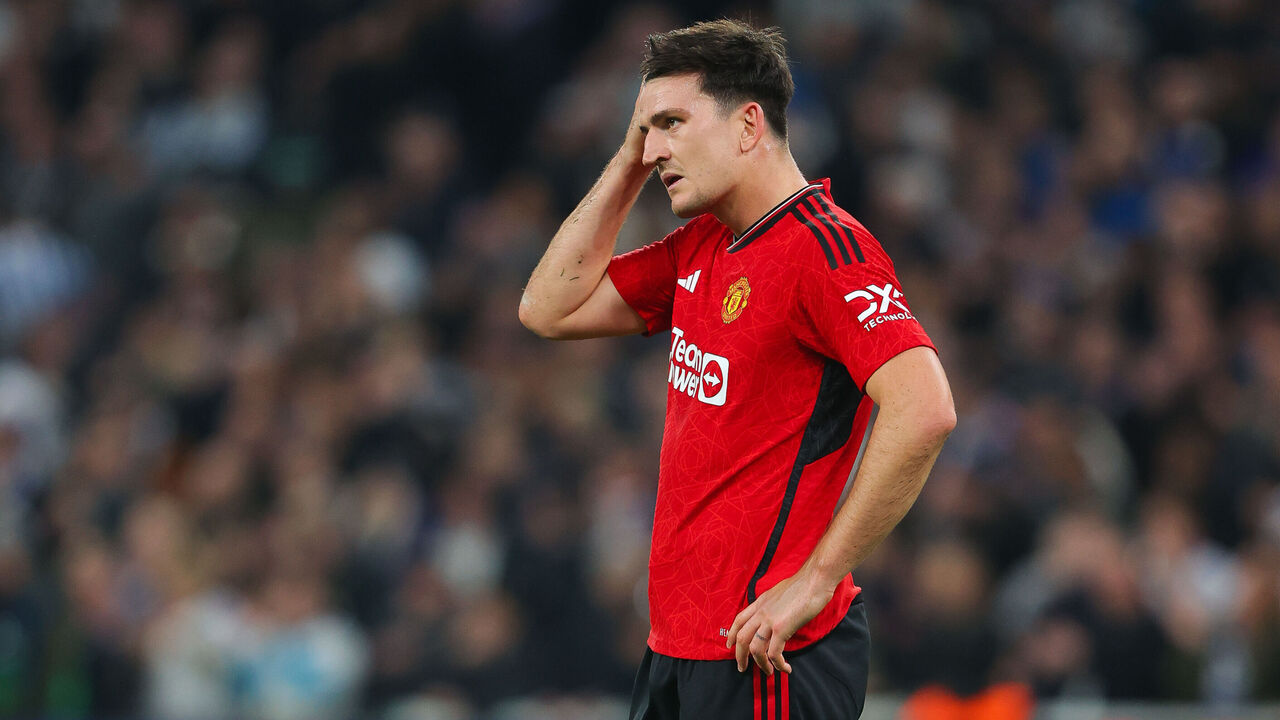
The Champions League rumbled on this week. Below, we dissect the biggest talking points from Matchday 4 in Europe’s premier club competition.
Ten Hag not to blame for latest collapse
Manchester United were humming. It seemed like Erik ten Hag had finally gotten through to his players. The passing was slick, the movement tidy, and chances were coming by the truckload. Rasmus Hojlund buried two of the three shots he had in the opening 40 minutes. Copenhagen had no answer for United’s swift attacking play.
But nothing is straightforward. Not for these Red Devils. Once a little adversity hit them, the whole apparatus short-circuited. Marcus Rashford’s admittedly unfortunate red card toward the end of the first half led to a collapse of epic proportions. Down to 10 men, United seemingly forgot how to defend. Copenhagen’s Mohamed Elyounoussi caught four defenders napping inside the area, and Harry Maguire reprised his role as scapegoat with another poorly conceded penalty in first-half stoppage time. Not even a gift of a penalty in the second half could give United the reprieve they needed: Copenhagen struck twice in the final 10 minutes to secure an incredible comeback victory that exposed the lack of personal responsibility and character in United’s increasingly fractured group.
Diogo Dalot has been a soft spot in United’s defense for a long time, and his inability to mark his man allowed Copenhagen an equally soft equalizer with just a handful of ticks remaining on the clock. Then, Raphael Varane, who’s looked a shell of the player who backstopped Madrid to multiple Champions League titles, gave away possession with an absurd blooper of a pass that Maguire could do nothing to corral. Copenhagen scored 23 seconds later.
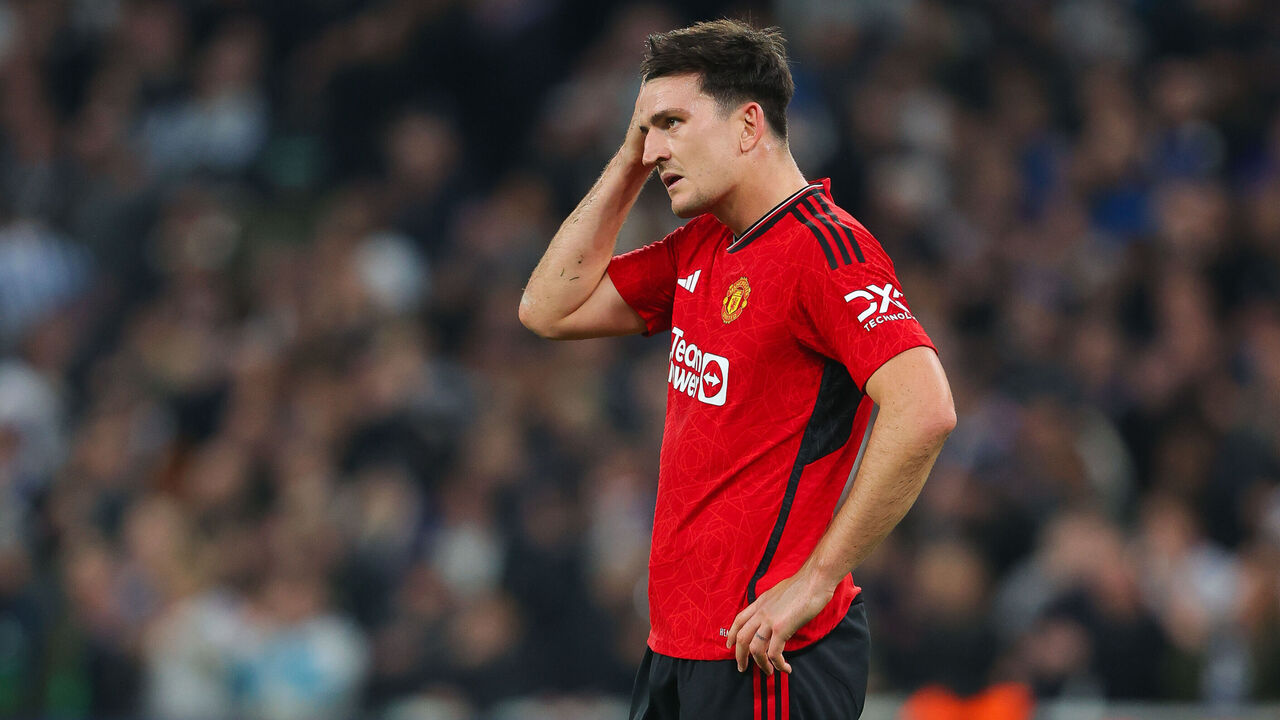
Ten Hag had set United up the right way. They looked like inevitable winners after a half hour. It was the best football they’d played under the Dutchman. But there’s only so much coaching he can do to prevent such a sizable mental collapse. He couldn’t have possibly legislated for one of the most senior players in the squad making such a casual error. Maybe he could’ve expected Dalot to blow his assignment, just not Varane.
At a certain point, the players have to take their share of the blame and accept they’re just as much, if not more, of a problem. So many of them look to blame the other person when a bit of self-reflection would go a long way. Ten Hag’s nonnegotiable disciplinary approach has certainly created a lot of negativity in United’s camp – and he must accept responsibility for that – but his players have routinely failed to meet the challenge. He can’t physically go on the field and push them into proper scoring or defending positions. They have to do that themselves. Either they can’t or they won’t. Which is worse? – Anthony Lopopolo
AC Milan save their season at critical juncture
Milan had just lost to one of the worst teams in Europe’s top five leagues. They had heard the music from fans who had up until this point saved their vitriol in the hopes their continued support would keep the team from slipping into the abyss. But enough was enough. The whistling after Saturday’s insipid 1-0 loss to Udinese was soul-crushing. The club’s DJ even dropped “Pioli’s on Fire,” Milan’s championship anthem, from his usual pregame mix.
But Milan’s reaction Tuesday against Paris Saint-Germain was the stuff of legend. The players took to the pitch with something to prove, and it told.
There wasn’t a single protagonist in Milan’s 2-1 win over PSG. It was truly a collective effort. It showed the team is still unified, even as talk of dressing room unrest intensifies. There was leadership, personality, and accountability from each of the 11 players on the field.
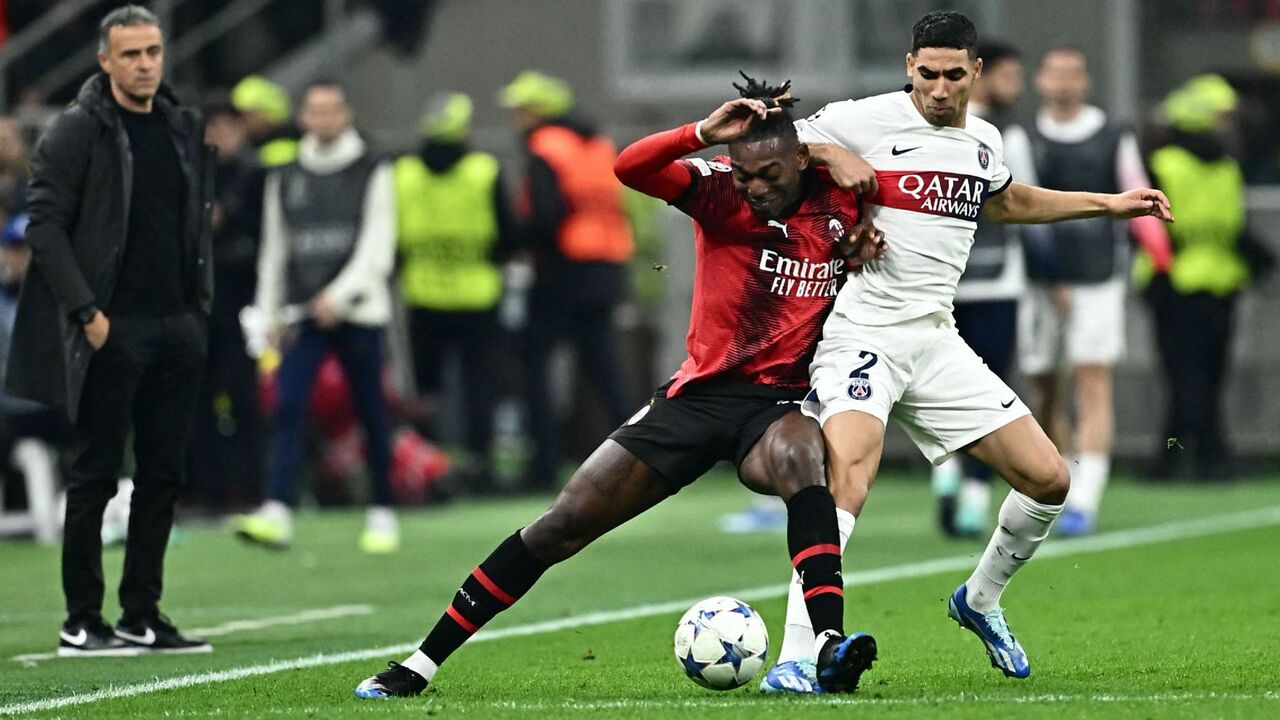
No one ditched their assignment. Davide Calabria shackled Kylian Mbappe. Fikayo Tomori reacted quickest to every ball. Rafael Leao scored off an overhead kick and put in serious work off the ball. He may have never defended so hard in his life. Ruben Loftus-Cheek won midfield battles and stormed up the pitch with ferociousness and an insatiable appetite. Olivier Giroud ran into channels and tormented PSG’s defenders. You could go on and on. Everyone bought in. No one dragged their feet. No one waited for someone else to do their job for them.
That includes head coach Stefano Pioli. Outcoached in several big matches this season, Pioli finally set his players up to succeed. He allowed Loftus-Cheek to play higher up the field, using him as an outlet on the counterattack, which Milan favored over the predictable possession-based football that had sucked the life out of their fans. Playing on the counter allowed Milan’s quicker, more physical players to take charge.
It was a calculated gamble. A loss Tuesday would’ve left them with a snowball’s chance in hell of qualifying for the Champions League knockout round. Now, they’re a point back of the top two in the group of death with two games remaining, and the win has galvanized a squad that was drifting aimlessly. – Lopopolo
Quick free-kicks
Put some respect on Calabria’s name
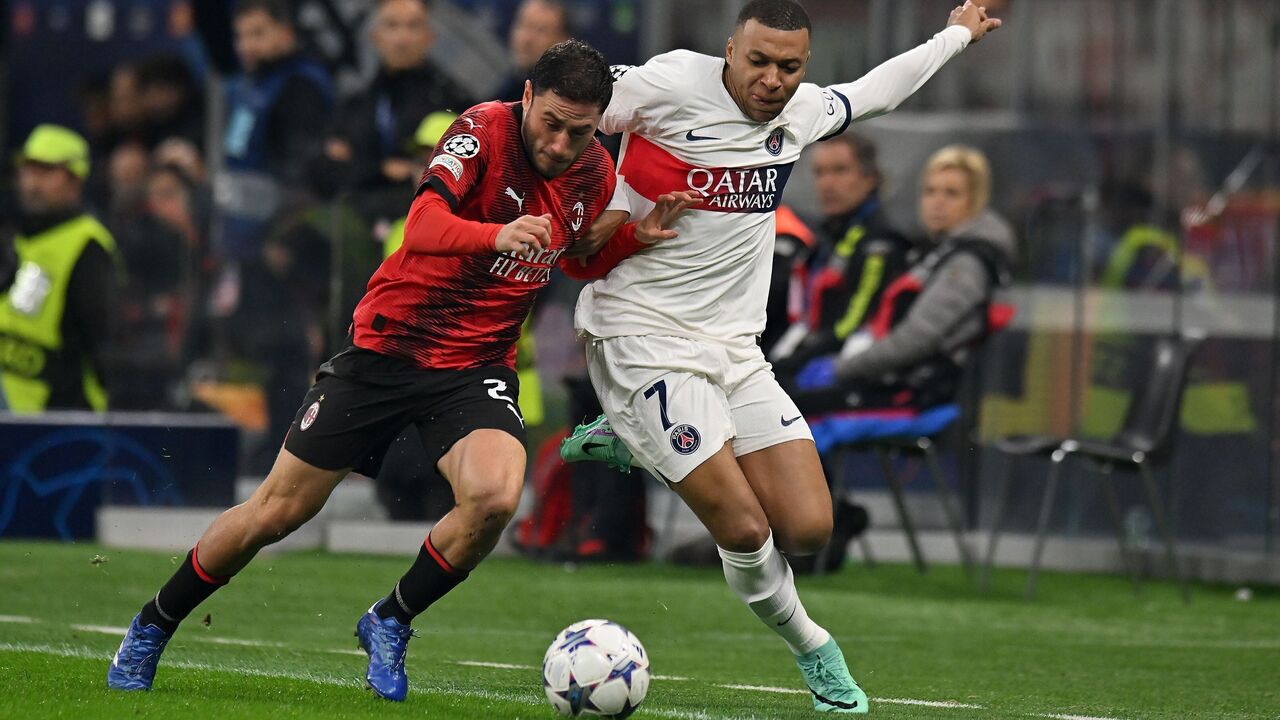
Milan’s captain gets a lot of flak. Fans routinely mock him on social media and belittle his attempts to inspire the team. But he’s a Milan lifer. He’s been with the club since he was 10. And he’s shown he can ball with the best of them. What more does he have to do to get the respect he deserves? What more does Luciano Spalletti have to see to call him up to the Italian national team? Calabria just muzzled two of the most dangerous dribblers in the game in Mbappe and Napoli’s Khvicha Kvaratskhelia, and while he may lack consistency, Calabria always gives his all and calls out his teammates when they don’t. There’s no hiding from it now: Calabria is captain material and good enough to start in the world’s biggest competitions. – Lopopolo
Young Boys captain embarrasses himself
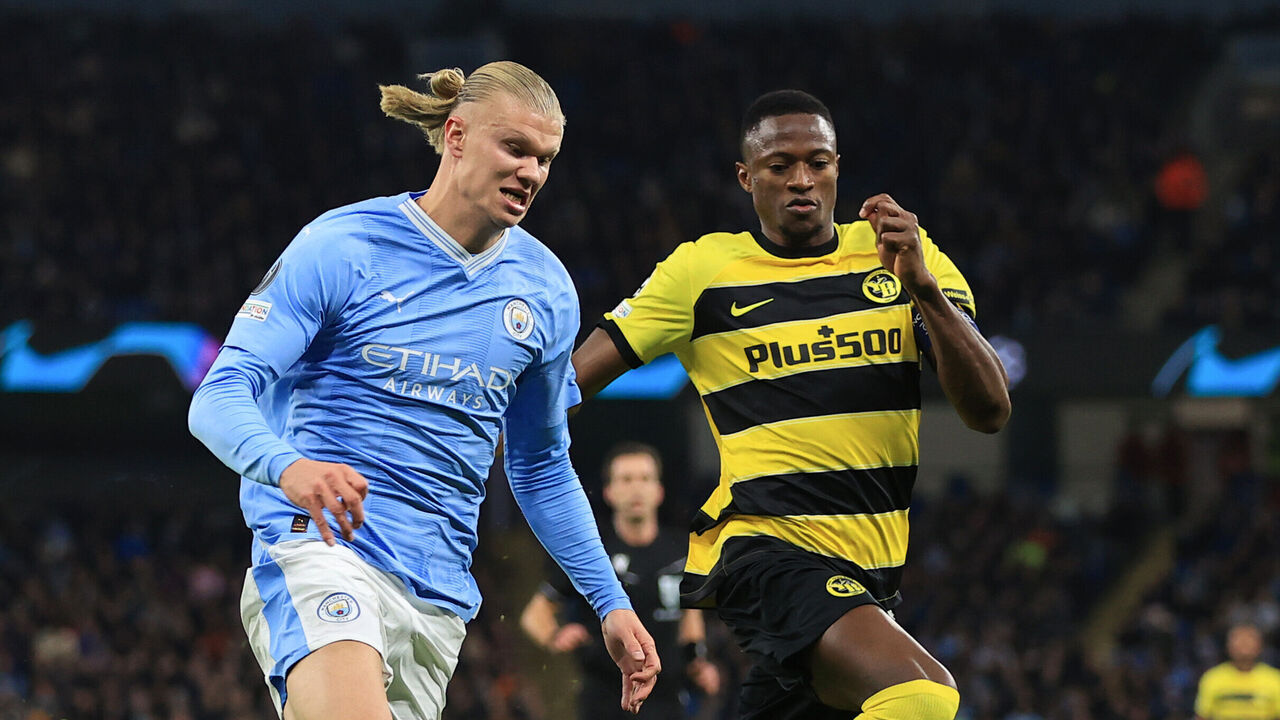
The look of disbelief on Erling Haaland’s face said it all after starstruck Young Boys captain Mohamed Ali Camara asked for his shirt at halftime. The bemused Manchester City star shook his head and said, “You cannot do this,” before submitting to Camara’s oddly timed request. Young Boys were 2-0 down. Haaland went on to make a mockery of the Swiss side after halftime, tucking away his second goal in a crisp new kit to seal a win that was never in doubt. Young Boys head coach Raphael Wicky clearly wasn’t impressed. “I wasn’t aware of that. I am a bit surprised about that. I will have a word with him and see what he thought,” Wicky said, according to BBC Sport’s Simon Stone. The only positive to come from all of this is that Camara’s embarrassing appeal helped mask what was a brutal performance by a Young Boys side that showed – on and off the pitch – it’s out of its depth in the Champions League. – Gordon Brunt
Griezmann back to elite level
Two years after his career bottomed out at Barcelona, Antoine Griezmann is clearly back to being an elite player. The Frenchman, who turned down a lucrative move to Saudi Arabia in the summer, was hailed as a club legend by Atletico head coach Diego Simeone after a strong shift in Tuesday’s 6-0 Champions League romp over Celtic. “He was born to play for Atleti,” Simeone said, according to Fabrizio Romano. Griezmann capped off his two-goal display with an acrobatic highlight-reel strike and has now scored in three consecutive Champions League games. With him and Alvaro Morata, who also had two goals against Celtic, firing on all cylinders, Atletico Madrid unexpectedly have one of the best attacking partnerships in Europe. Not bad for a club typically associated with stout defending. – Brunt
10 – @atletienglish are the only team in the Top-5 European Leagues with two different players who have scored 10+ goals this season in all competitions – Alvaro Morata (12) and Antoine Griezmann (11). Duo. pic.twitter.com/Akl7aQHsiG
— OptaJose (@OptaJose) November 8, 2023
Straight from the training ground
Things ultimately went sideways for Paris Saint-Germain on Tuesday, but their opening goal in Milan was an example of work on the training pitch translating perfectly to an in-game situation. Marquinhos met an outswinging corner kick from Vitinha and took a handful of defenders out of the play with a flick-on right into the path of Milan Skriniar, who had the simple task of knocking it over the line from close range. Fans, commentators, and pundits alike often complain when a set piece doesn’t beat the first man, asking how professional footballers can put forth such terrible deliveries. In certain cases, it’s a fair critique. But oftentimes, they’re asking the wrong question. The initial cross, be it from a corner or free-kick, usually looks to connect with a near-post runner, like Marquinhos in this case, who can then change the ball’s trajectory. Against a set defense that has nine – or even all 10 – players in the penalty area, that’s one of the few ways to actually create scoring opportunities. – Gianluca Nesci
What happened to Benfica?
Benfica came into the 2023-24 season on the back of consecutive quarterfinal appearances in the Champions League. They won a group that included PSG and Juventus last year, going unbeaten in the opening round of the competition. How quickly things change. The Portuguese side was eliminated from contention for the knockout stage Wednesday after a comprehensive 3-1 defeat to Real Sociedad. Benfica, rolling along in domestic play, is pointless after four matches in Europe this season. Rafa Silva’s consolation goal – when La Real were already 3-0 up and cruising – was their first of the group stage, making them the last team to break their duck. They lost Goncalo Ramos and Alex Grimaldo in the summer, but, for the most part, the team that dazzled last season is still intact, and new young stars like Joao Neves are emerging. What’s gone wrong? Angel Di Maria, who returned as a free agent, was largely anonymous Wednesday. Summer signing Orkun Kokcu is injured. Arthur Cabral, recruited for €20 million to replace Ramos, has been a total bust so far. A continental campaign to forget for Roger Schmidt. – Nesci
Hojlund shows what he can do with service
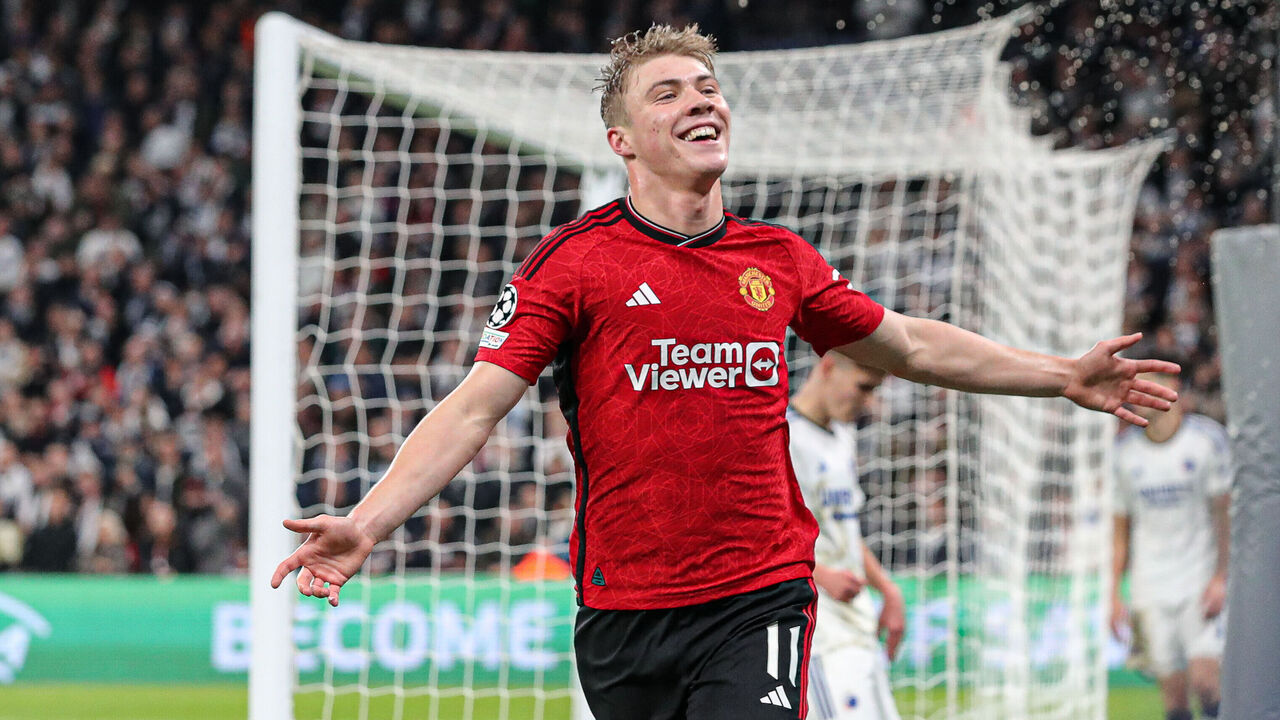
We all know Hojlund hasn’t scored in eight Premier League matches. Those goals will come if United tee him up the way they did in the first half against Copenhagen. Hojlund’s movement has always been a strong suit, and he routinely finds ways to get into scoring positions. It’s just up to his teammates to seek him out. That happened Wednesday, and he looked every bit like the £64-million striker everyone expected. His first goal was a tap-in born of his shifty movement in the penalty area, and his second came off the counter, a not-so-surprising development considering his pace off the ball. Hojlund showed exactly what he can do in a fleet-footed system, and it should encourage both Ten Hag and supporters that this investment will come good. – Lopopolo
Stat of the week
Pepe might just keep playing forever.
40 – At 40 years and 254 days, Pepe tonight became the first player aged 40+ to score a UEFA Champions League goal. Eternal. #PORANT pic.twitter.com/X5I9TnMTim
— OptaJoe (@OptaJoe) November 7, 2023
Tweet of the week
Manchester United fans are trained to expect the worst right now.
United comfortably winning is like being 1st in Mario Kart, you just know that blue shell is en route
— Kome (@KahunaKome) November 8, 2023
You may like
La Liga
Look: Adidas drops huge collection of new kits for Euro 2024, Copa America
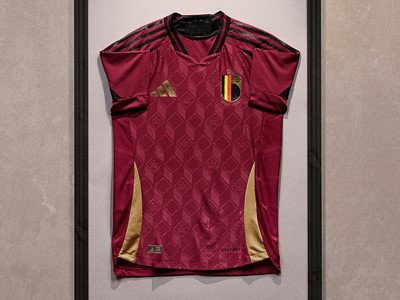
Find the biggest stories from across the soccer world by visiting our Top Soccer News section and subscribing to push notifications.
It’s time to bulk up your wardrobe for the upcoming glut of international football.
With Euro 2024 kicking off in 92 days and Copa America starting six days later, Adidas has revealed two new kits for 12 different national teams. These teams are guaranteed to wear their new uniforms on pitches across Germany and the United States this summer, with the exception of Wales, which must emerge from the Euro 2024 playoffs to ensure top tournament billing.
Adidas will also reveal fresh kits for Jamaica and Costa Rica in the near future. Both national teams face one-off playoffs March 23 to determine whether they’ll compete at Copa America.
(All images courtesy of Adidas.)
Euro 2024
Belgium
Home

The usual combination of colors for Belgium. The Royal Belgian Football Association’s crest features repeatedly in the shirt’s pattern.
Away
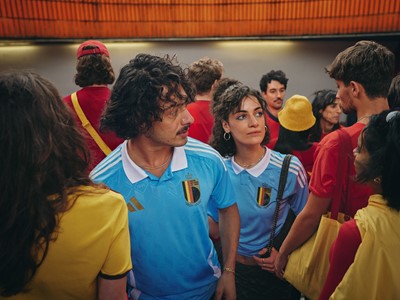
It’s the Tintin kit! The blue shirt is accompanied by brown shirts and white socks in homage to the iconic Belgian comic book character. It drew worldwide attention before its release.
Germany
Home
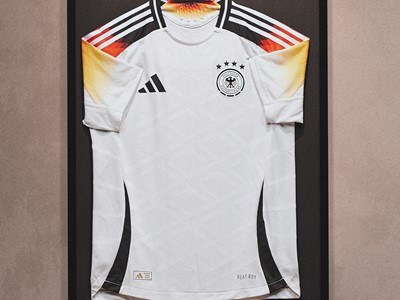
Germany opts for a classic look.
Away
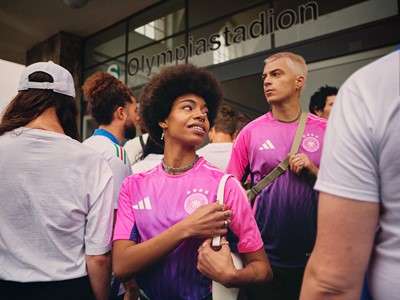
The away threads’ marriage of pink and purple is intended to celebrate the diversity of Germany’s new generation.
Hungary
Home
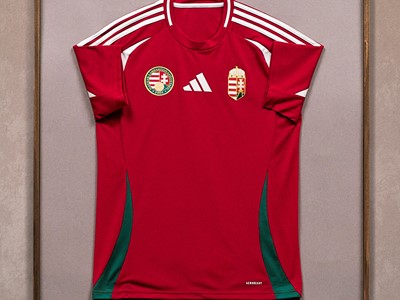
Adidas leaned on the national flag and patterns of the national team’s crest for ideas for Hungary’s home jersey.
Away
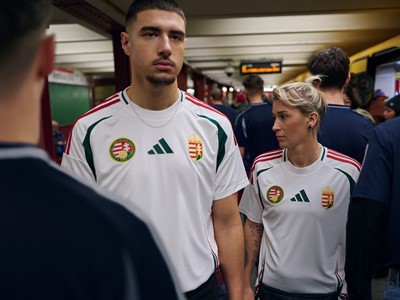
Hungary will wear a simple alternative shirt in Germany.
Italy
Home
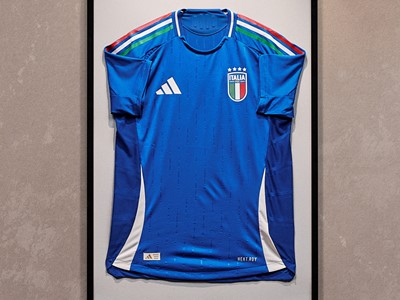
There’s nothing daring about this look, but incorporating the flag colors in the Adidas stripes is a nice touch.
Away
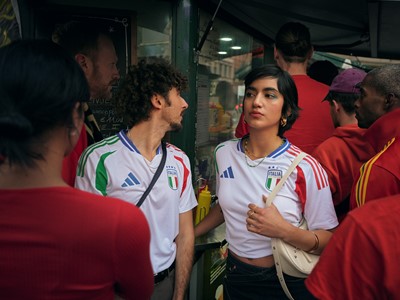
Does Italy’s away shirt look too much like training gear?
Scotland
Home
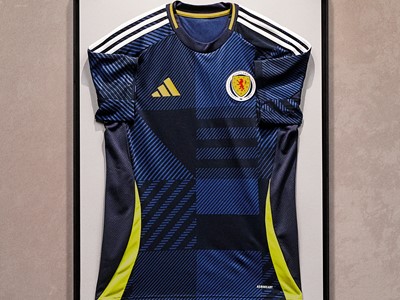
The patterns are a nod to Scottish tartan and heritage.
Away
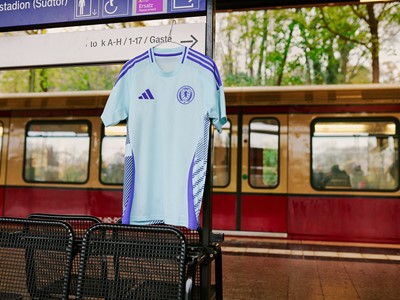
Tartan graphics also leak into Scotland’s away kit.
Spain
Home
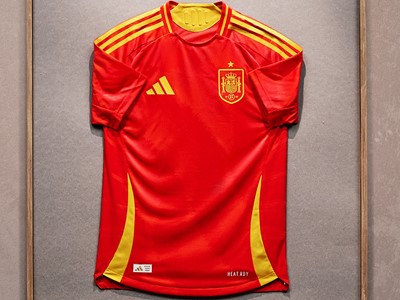
A very basic red-and-yellow theme for Spain’s main outfit.
Away
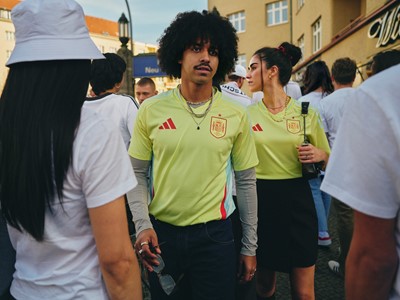
An interesting dash of blue on the side panels and at the base add intrigue to Spain’s away shirt.
Wales
Home
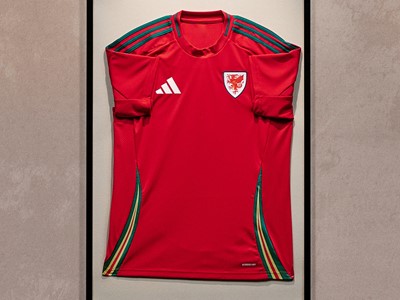
The curled spikes of green, yellow, and red up the side panels neatly round off this classic Welsh top.
Away

This kit is directly influenced by the Welsh bucket hat, which is a popular item worn by supporters at recent tournaments.
Copa America
Argentina
Home

In addition to the shield acknowledging Argentina’s 2022 World Cup triumph, there are further gold details to really drive its global dominance home. And why not?
Away
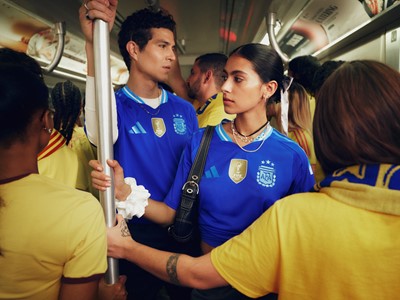
Argentina went quite safe for its away design.
Chile
Home
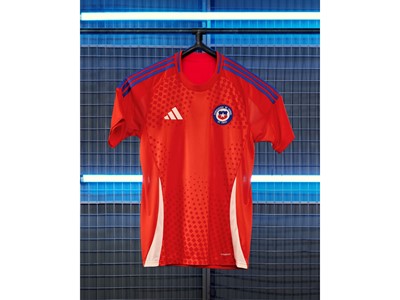
A mosaic of squares forms a star in the middle of Chile’s red home shirt.
Away
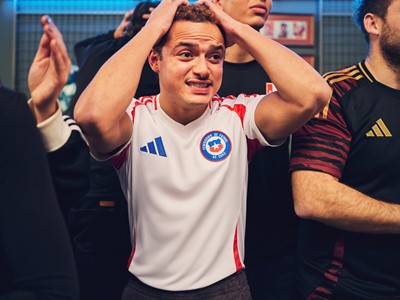
Is this model’s pose foreshadowing Chile’s performance at Copa America?
Colombia
Home
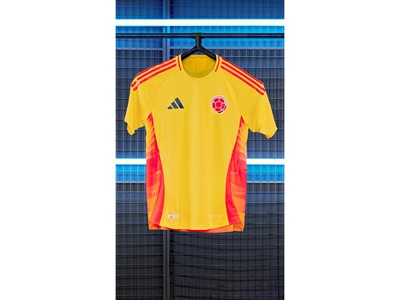
The patterning on the sides brings a unique touch to an otherwise classic Colombian look.
Away
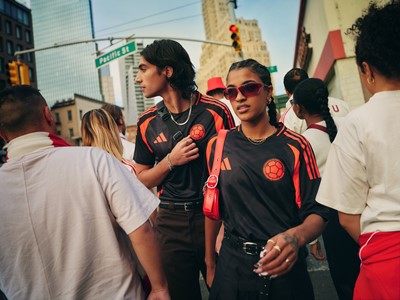
A strong orange tone lifts another dark base for Colombia’s away kit.
Mexico
Home

This is probably the best of the bunch. Mexico is always open to trying something different with its main jersey. Instead of green, El Tri will don a uniform with a burgundy-red base.
Away
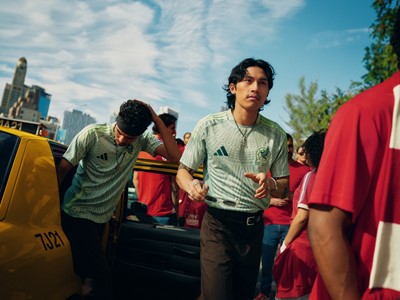
This mint-green effort is another original look for Mexico at Copa America.
Peru
Home
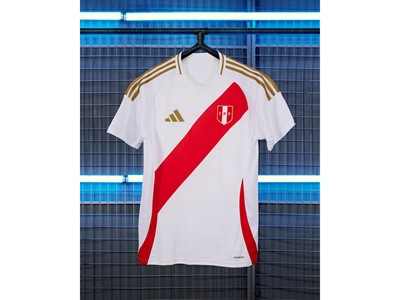
Peru’s red sash is one of the most celebrated adornments of any international jersey, but are the red embellishments rising from the hip a bit too much?
Away
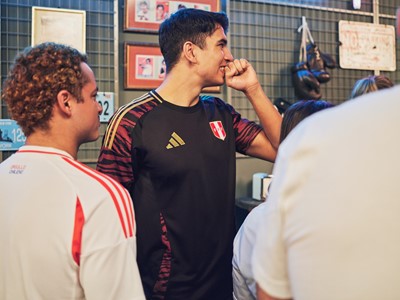
A simple design is spruced up with patterns intended to refer to the cajon, which is a Peruvian percussion instrument.
La Liga
Transfer window preview: 50 players who could move in January
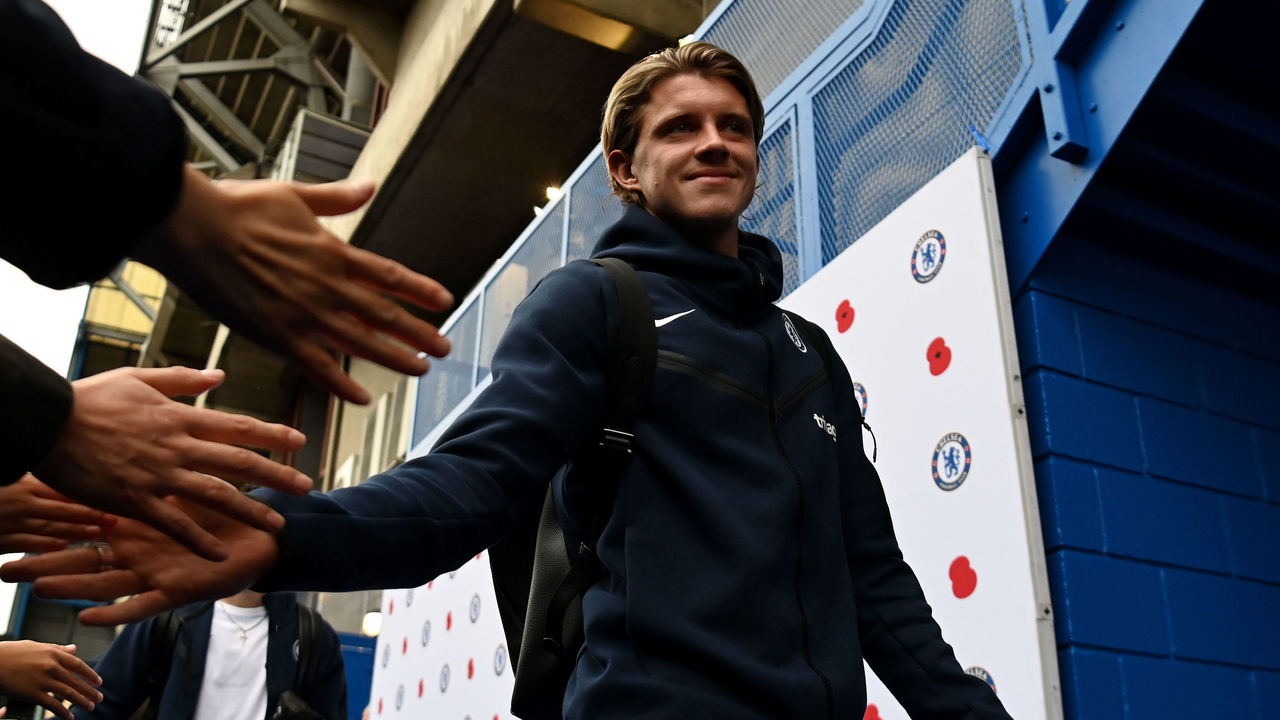
Find the biggest stories from across the soccer world by visiting our Top Soccer News section and subscribing to push notifications.
With the January transfer window set to open on the first day of the new year, we’re teeing up the wheeling and dealing by presenting 50 players who could be on the move.
| LEAGUE | DEADLINE DAY |
|---|---|
| Bundesliga | Feb. 1 (12 p.m. ET) |
| Ligue 1 | Feb. 1 (5 p.m. ET) |
| Premier League | Feb. 1 (6 p.m. ET) |
| La Liga | Feb. 1 (6 p.m. ET) |
| Serie A | Feb. 1 (7 p.m. ET) |
Note: Estimated transfer values provided by transfermarkt.com.
Premier League ?gbeng
Aaron Ramsdale (Arsenal)
Age: 25
Position: Goalkeeper
Estimated value: €28M
Unseated by the arrival of David Raya, Ramsdale’s future is a little murky. Arsenal are unlikely to sanction a loan move, especially to a Premier League rival, but with an eye on Euro 2024, the netminder needs more minutes.
Lloyd Kelly (Bournemouth)
Age: 25
Position: Center-back
Estimated value: €16M
Bournemouth don’t want to lose him, but with Kelly’s contract set to expire in the summer and no sign he’ll renew, defender-needy clubs like Liverpool and Tottenham Hotspur are circling in the hopes of sealing a midseason signing.
Ivan Toney (Brentford)
Age: 27
Position: Striker
Estimated value: €35M
Toney’s eight-month ban for betting breaches ends in January, and his return to the pitch could precipitate a transfer. He’s a proven scorer with 32 goals in 68 Premier League appearances, and plenty of clubs need help up front.
Marc Cucurella (Chelsea)
Age: 25
Position: Left-back
Estimated value: €25M
Despite his recent injury, Cucurella headlines a trio of defenders who may leave west London this winter – Ian Maatsen and Trevoh Chalobah could also depart. Chelsea, as ever, will be fascinating to watch when the window opens.
Conor Gallagher (Chelsea)
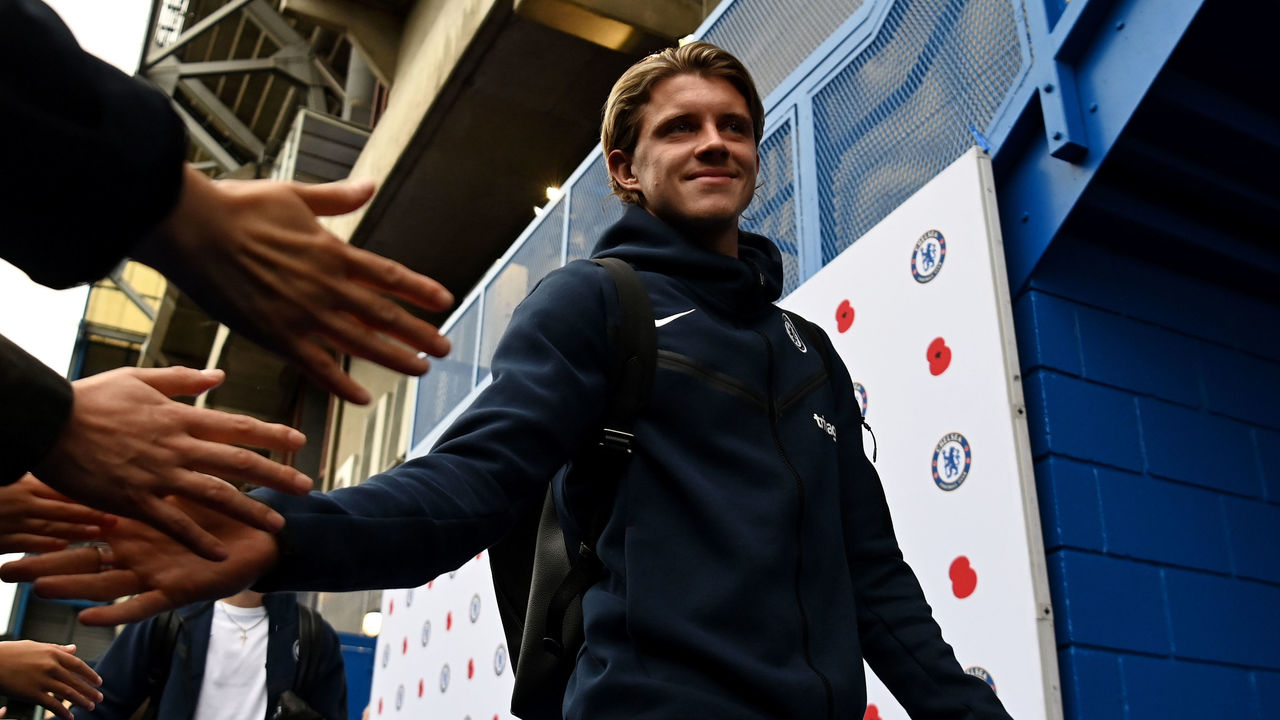
Age: 23
Position: Midfielder
Estimated value: €42M
One of the window’s most intriguing names. Only Axel Disasi has played more minutes for Chelsea this season – Gallagher has even worn the armband – but he represents the Blues’ best chance of making a sizeable profit in January.
Noni Madueke (Chelsea)
Age: 21
Position: Winger
Estimated value: €25M
January is about finding opportunities to bolster your squad or, in some cases, find a piece to push your team over the top. Madueke, clearly very talented but getting few chances to shine at Chelsea, could fit the bill.
Joao Palhinha (Fulham)
Age: 28
Position: Defensive midfielder
Estimated value: €60M
After coming agonizingly close to joining Bayern Munich in the summer – Palhinha was literally in Bavaria waiting, in vain, for a deal to be closed – the excellent midfielder will once again be a hot, though expensive, commodity.
Kalvin Phillips (Manchester City)
Age: 28
Position: Defensive midfielder
Estimated value: €28M
Nobody needs a January transfer more than Phillips, whose career has derailed since joining Manchester City; Pep Guardiola has repeatedly apologized for his lack of opportunities. Juventus are reportedly interested.
Anthony Martial (Manchester United)
Age: 28
Position: Forward
Estimated value: €15M
Erik ten Hag may say that Manchester United aren’t looking to move Martial, but the Frenchman’s limited amount of playing time this season speaks louder than the manager’s words ever will.
Jadon Sancho (Manchester United)
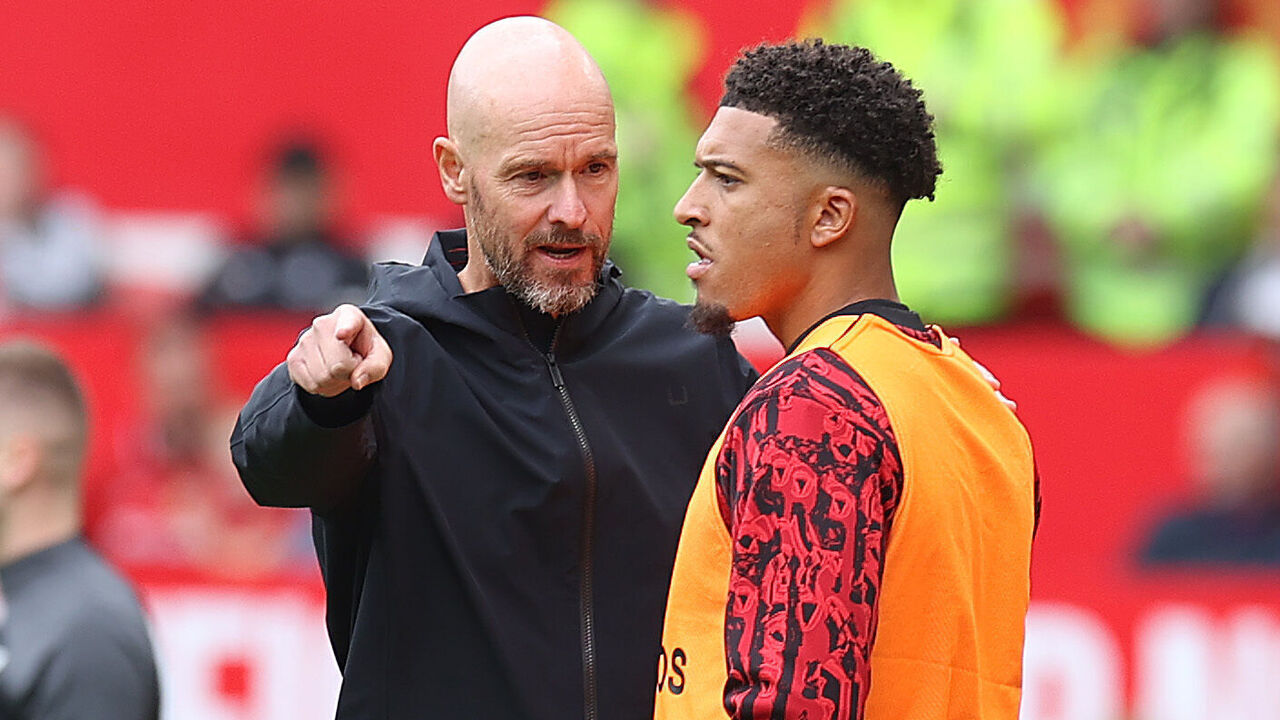
Age: 23
Position: Winger
Estimated value: €23M
With Sancho and Ten Hag perpetually at odds, it’s in everyone’s best interest to just part ways. A loan seems most likely in January, with United having a better chance of recouping some of his huge transfer fee in the summer.
Raphael Varane (Manchester United)
Age: 30
Position: Center-back
Estimated value: €25M
Real Madrid and Bayern Munich need help in central defense, and Varane could represent excellent value. His familiarity with the Spanish club would make his transition seamless, which is always a key consideration in January.
Pierre-Emile Hojbjerg (Tottenham Hotspur)
Age: 28
Position: Midfielder
Estimated value: €28M
Hojbjerg has only started three Premier League matches this season under Ange Postecoglou. In what will become a common refrain on this list, the Dane could depart in search of more regular playing time ahead of Euro 2024.
La Liga ??
Ferran Torres (Barcelona)
Age: 23
Position: Forward, winger
Estimated value: €35M
Despite getting consistent opportunities since joining the club, there’s always been a sense that Barcelona don’t truly believe in Torres. Already fierce competition for minutes will be more extreme following Vitor Roque’s arrival.
Miguel Gutierrez (Girona)
Age: 22
Position: Left-back
Estimated value: €20M
Gutierrez has been one of the breakout performers helping to fuel Girona’s fairy-tale title push. Real Madrid reportedly have an €8-million buyback option on the youngster, who seems destined for a big move soon.
Juan Miranda (Real Betis)
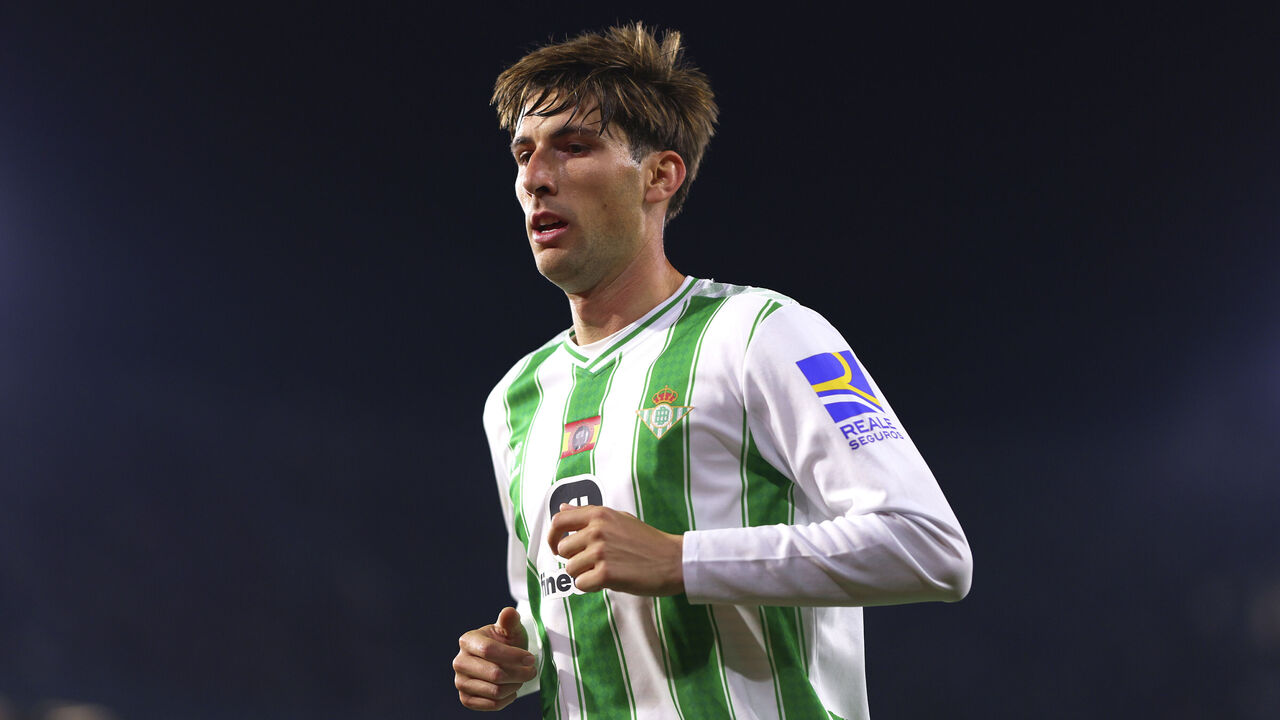
Age: 23
Position: Left-back
Estimated value: €9M
Miranda, a product of Barcelona’s famed academy, is another soon-to-be free agent who could yet leave in January if his club wants to procure a transfer fee. AC Milan, seeking defensive depth, are working to sign the Spaniard.
Rafa Mir (Sevilla)
Age: 26
Position: Striker
Estimated value: €5M
Sevilla are among the most obvious candidates for a big January shakeup following a dismal opening half of the season. Mir’s struggles – just two league starts and one goal – are emblematic of the rough campaign in Andalusia.
Serie A ??
Joshua Zirkzee (Bologna)
Age: 22
Position: Forward
Estimated value: €30M
Zirkzee’s been one of the revelations of the European season, helping power Bologna’s top-four push. The Dutchman reportedly has a €40-million release clause, and Bayern Munich retained a buyback option worth half that.
Radu Dragusin (Genoa)
Age: 21
Position: Center-back
Estimated value: €20M
A physically imposing center-back with the necessary on-ball skills to thrive in the modern game, Dragusin is garnering interest across Europe. Atalanta, perhaps anticipating Giorgio Scalvini’s summer exit, are reportedly keen.
Samuel Iling-Junior (Juventus)
Age: 20
Position: Winger
Estimated value: €20M
The Englishman has received little playing time after breaking into Juventus’ senior side last season. If Juve decide to sacrifice one of their young talents to generate funds, Iling-Junior seems the likeliest candidate at the moment.
Victor Osimhen (Napoli)
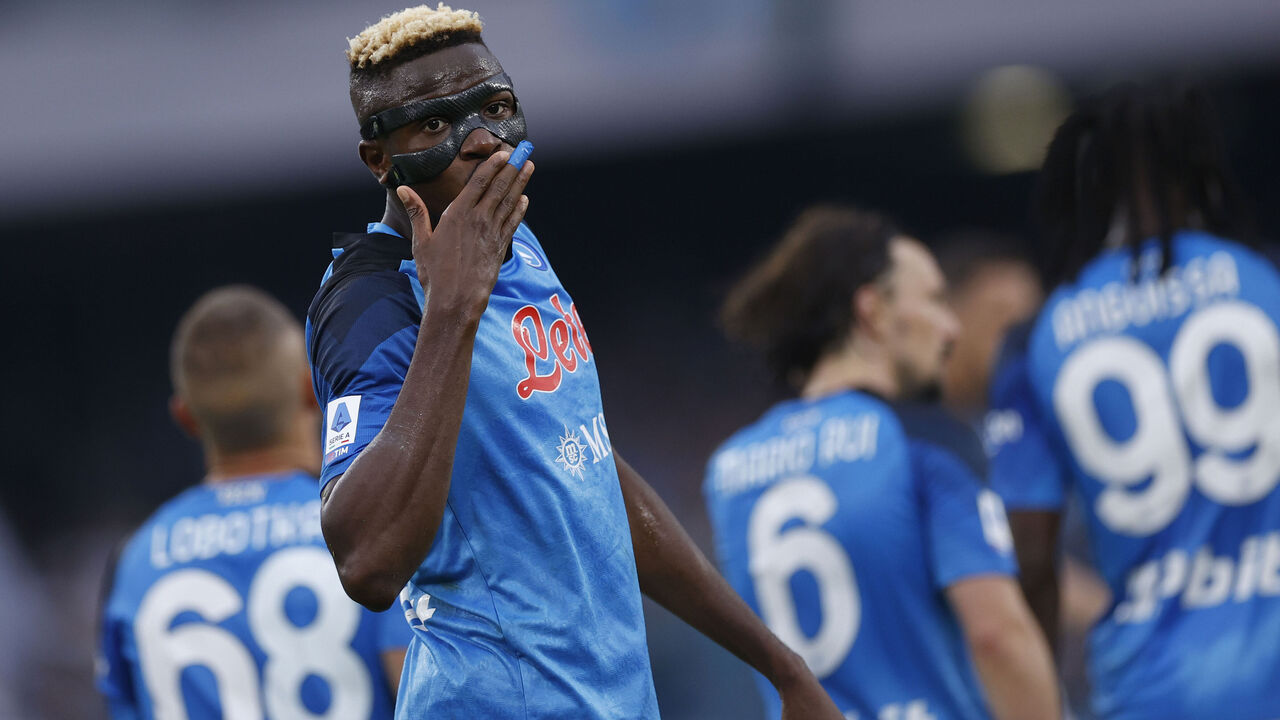
Age: 24
Position: Striker
Estimated value: €110M
Osimhen may have just signed a contract extension with the ailing Italian champions, but that won’t stop the rumors, especially with his reported €130-million release clause. Chelsea remain in desperate need of a proper No. 9.
Lazar Samardzic (Udinese)
Age: 21
Position: Attacking midfielder
Estimated value: €20M
Looking for something – anything, really – to help jump-start their miserable title defense, Napoli have apparently turned their attention to Samardzic, who provides silky dribbling and playmaking ability from midfield.
Bundesliga ??
Piero Hincapie (Bayer Leverkusen)
Age: 21
Position: Center-back
Estimated value: €35M
It’s hard to imagine anyone wanting to leave red-hot Bundesliga leaders Bayer Leverkusen right now, but Xabi Alonso’s preferred back-three doesn’t include the Ecuadorian, which could facilitate a January transfer.
Gio Reyna (Borussia Dortmund)
Age: 21
Position: Attacking midfielder
Estimated value: €20M
Reyna must move to get his once blossoming career back on track. A variety of factors contributed to his recent status as a bit-part player at Dortmund, but he’s flashed enough potential in the past to earn a chance elsewhere.
Donyell Malen (Borussia Dortmund)
Age: 24
Position: Winger
Estimated value: €35M
Dortmund tumbled down the table following a rough run into the winter break, leaving Edin Terzic on thin ice. Against that backdrop, parting with one of your few scoring threats would be a tough sell, but rumors about Malen persist.
Manu Kone (Borussia Monchengladbach)
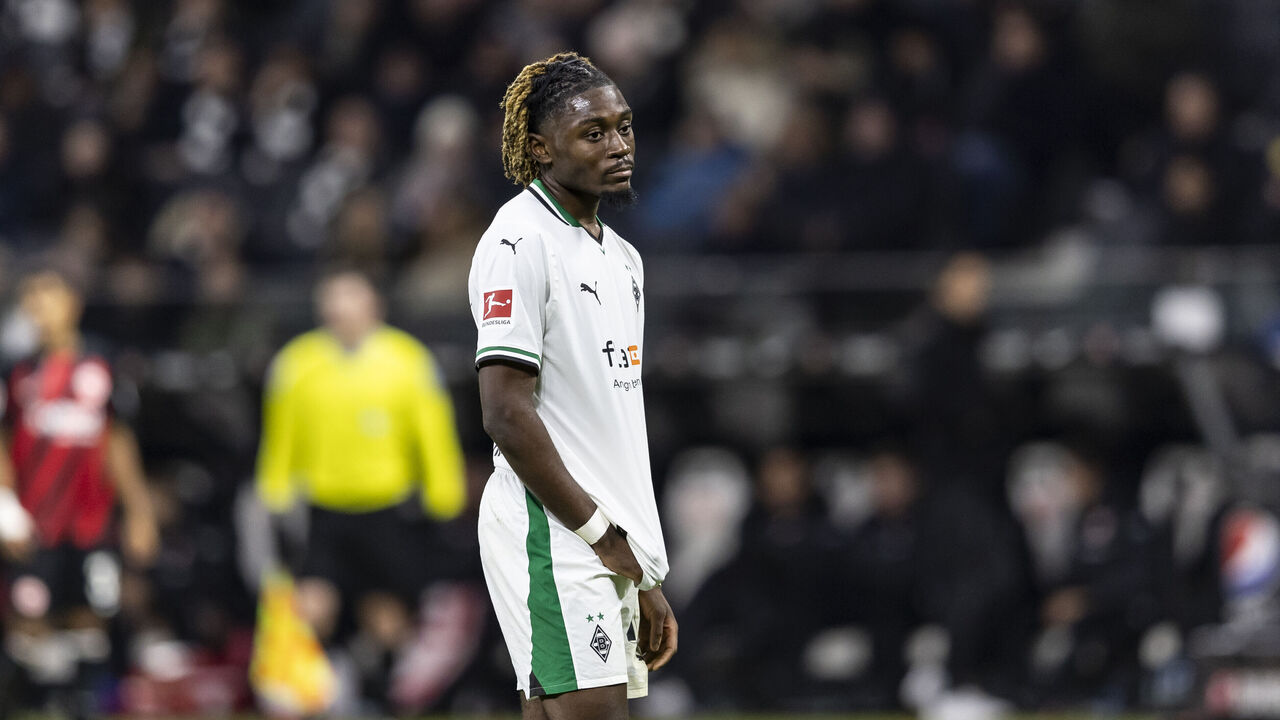
Age: 22
Position: Midfielder
Estimated value: €35M
After several clubs, including Bayern Munich and Liverpool, were linked with his services in the summer, the trail has gone a little cold on Kone of late. That’s sure to change in January. A deadline-day deal is a distinct possibility.
Fabio Carvalho (RB Leipzig)
Age: 21
Position: Attacking midfielder
Estimated value: €14M
Carvalho’s loan move to RB Leipzig simply hasn’t worked out as anyone had hoped. He’s made just three starts, prompting Liverpool to explore the possibility of recalling and sending him elsewhere in January.
Serhou Guirassy (VfB Stuttgart)
Age: 27
Position: Striker
Estimated value: €40M
Scoring 17 goals in 14 Bundesliga games doesn’t go unnoticed. A January move for the Guinean is complicated by his expected involvement in AFCON, but his extremely modest €17.5-million release clause has clubs salivating.
Ligue 1 ??
Tiago Djalo (Lille)
Age: 23
Position: Center-back
Estimated value: €15M
Instead of losing the Portuguese defender for free in the summer, Lille are reportedly considering cashing in now. With Inter, Juventus, and Atletico Madrid all in the mix, the French outfit could incite a decent bidding war.
Leny Yoro (Lille)
Age: 18
Position: Center-back
Estimated value: €25M
Already one of the standout defenders in France despite his tender age, Yoro is someone Lille will fight to keep for as long as possible. PSG, now trying to scoop up every emerging talent in the country, will need to pony up.
Khephren Thuram (Nice)
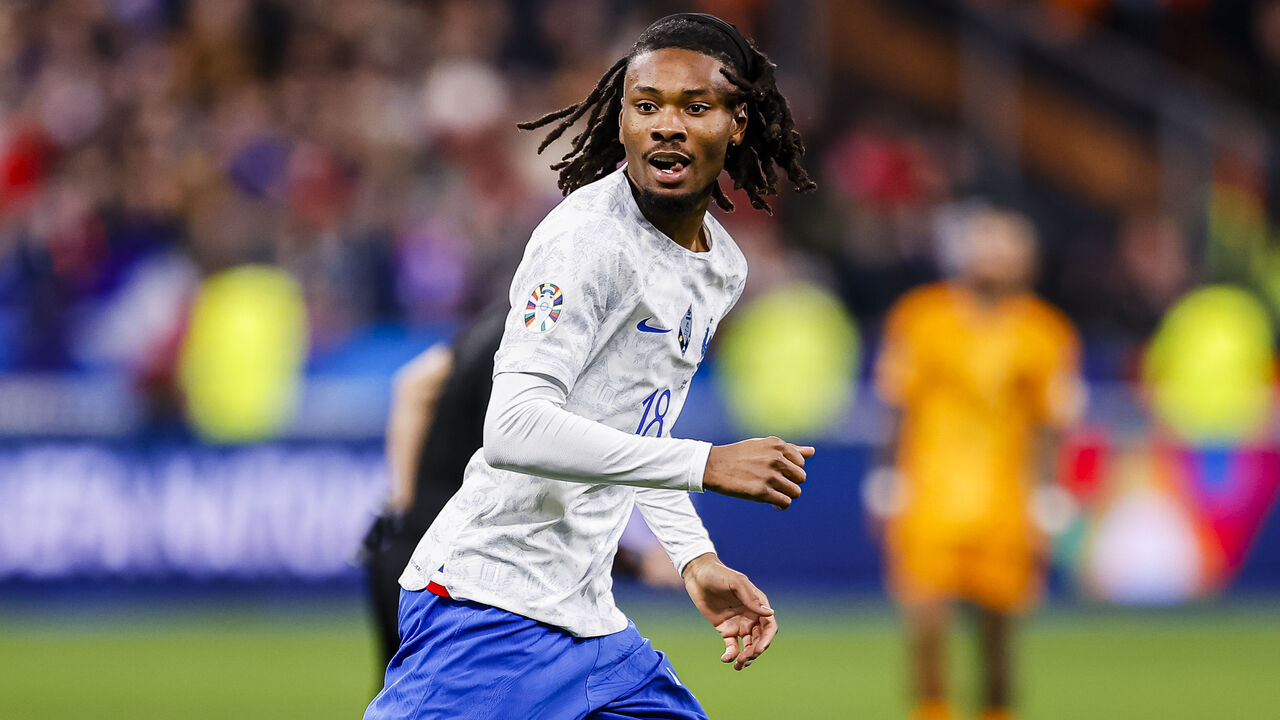
Age: 22
Position: Midfielder
Estimated value: €40M
Thuram, despite interest from England and Italy in the summer, remained in the French Riviera – who could blame him? Both he and teammate Jean-Clair Todibo will feature prominently as the January rumors swirl.
Hugo Ekitike (Paris Saint-Germain)
Age: 21
Position: Striker
Estimated value: €15M
Ekitike’s big move to the French capital went sour very quickly. PSG tried to offload him in the summer, to no avail. Stuck behind Randal Kolo Muani and Goncalo Ramos, he’s played a measly nine minutes in Ligue 1 this season.
Kylian Mbappe (Paris Saint-Germain)
Age: 25
Position: Forward
Estimated value: €180M
What, you thought we’d get through a transfer window without rehashing Mbappe’s flirtations with Real Madrid? The saga will inevitably heat up again now that Madrid can negotiate openly with the impending free agent.
Around the world ?
Jota (Al-Ittihad)
Age: 24
Position: Forward, winger
Estimated value: €9M
Jota’s move to Saudi Arabia has been an unmitigated disaster for everything but his bank account thus far, sparking rumors that the ex-Celtic star could be one of the first players to make a swift return to Europe from the Middle East.
Thiago Almada (Atlanta United)
Age: 22
Position: Attacking midfielder
Estimated value: €27M
It’s simply a matter of when Almada makes the leap to Europe. The only question is whether the diminutive Argentine will break Miguel Almiron’s €24-million record as the most expensive outgoing transfer in MLS history.
Antonio Silva (Benfica)
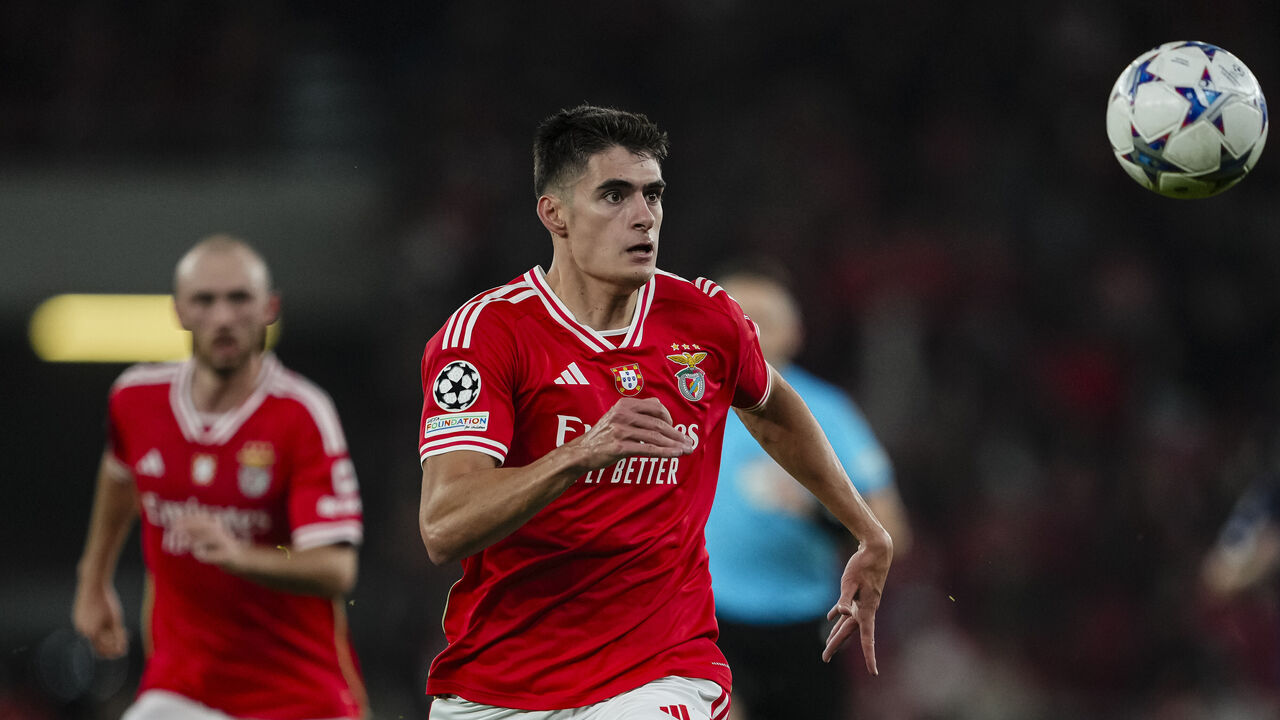
Age: 20
Position: Center-back
Estimated value: €45M
Enzo Fernandez’s mammoth move to Chelsea proved that Benfica aren’t afraid to sanction sales of vital players in January if the offer is sweet enough. Silva, whose price tag is only rising, could be next in line.
Valentin Barco (Boca Juniors)
Age: 19
Position: Left-back
Estimated value: €13M
Chelsea are reportedly keen on Barco. Strasbourg, the French side also owned by the Todd Boehly-Clearlake Capital consortium, could be used by the Blues as a means to beat the likes of Manchester City to the Boca starlet.
Tajon Buchanan (Club Brugge)
Age: 24
Position: Winger, wing-back
Estimated value: €8M
Inter are reportedly advancing in talks for the rapid Canadian, who’s viewed as the ideal replacement for the injury-ravaged Juan Cuadrado. Buchanan would serve as Denzel Dumfries’ backup in Simone Inzaghi’s 3-5-2 formation.
Benjamin Rollheiser (Estudiantes de La Plata)
Age: 23
Position: Winger
Estimated value: €10M
Newcastle United, decimated by injuries and in search of reinforcements, are reportedly tracking the electrifying dribbler, who’s lighting things up in Argentina. Not to be outdone, Benfica and Atletico Madrid are also circling.
Brandon Vazquez (FC Cincinnati)
Age: 25
Position: Striker
Estimated value: €8.5M
Vazquez was unable to replicate his breakout 2022 campaign this past year, but that hasn’t deterred clubs intrigued by his blend of power and scoring prowess. Brentford, given the uncertainty around Toney, could make a move.
Nico Gonzalez (FC Porto)
Age: 21
Position: Midfielder
Estimated value: €9M
Things haven’t quite worked out as planned after a summer move to Porto, with the former Barcelona midfielder spending most of his time on the bench. An immediate return to La Liga shouldn’t be ruled out.
Mehdi Taremi (FC Porto)
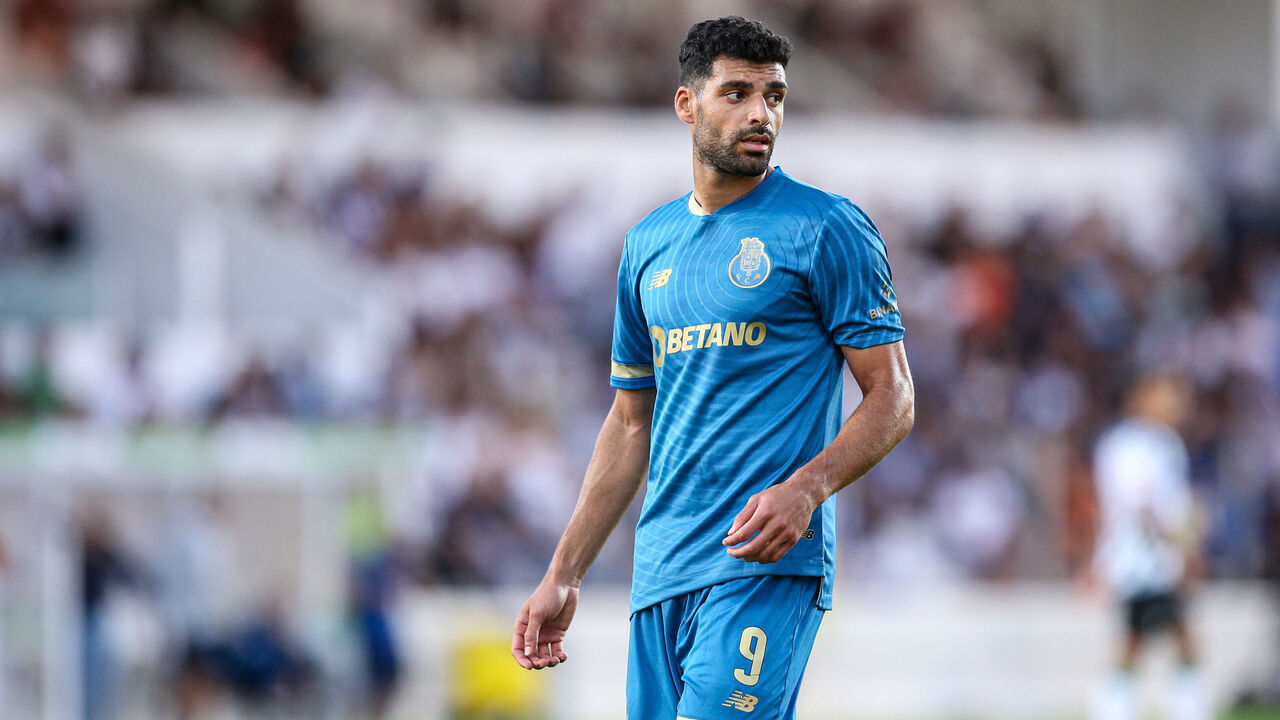
Age: 31
Position: Striker
Estimated value: €12M
Inter continue to show strong interest in Taremi, who was one of their targets in the summer window before they settled for a low-cost option in Marko Arnautovic. The Iranian striker is a free agent at the end of the season.
Santiago Gimenez (Feyenoord)
Age: 22
Position: Striker
Estimated value: €50M
The prolific Mexican is one of the game’s most coveted scorers after a sensational 2023 in which he broke Luis Suarez’s record for most Eredivisie goals in a calendar year. Feyenoord will demand a fortune, and rightly so.
Andre (Fluminense)
Age: 22
Position: Defensive midfielder
Estimated value: €25M
The Brazilian, who was scouted by some of the Premier League’s top teams over the summer, put them all on high alert when he recently said his “big dream” is to play in England. How long can Fluminense hold on to him?
Denis Bouanga (LAFC)
Age: 29
Position: Forward
Estimated value: €10M
On the heels of capturing the MLS Golden Boot in 2023, Bouanga suggested he could soon return to Europe. Any move would require a “hugely expensive” transfer fee, according to LAFC general manager John Thorrington.
Johan Bakayoko (PSV Eindhoven)
Age: 20
Position: Winger
Estimated value: €40M
Wingers who excel at beating their defender and teeing up teammates inside the penalty area are always in high demand, so the collection of big clubs eyeing Bakayoko should come as no surprise. An opulent transfer beckons.
Georgiy Sudakov (Shakhtar Donetsk)
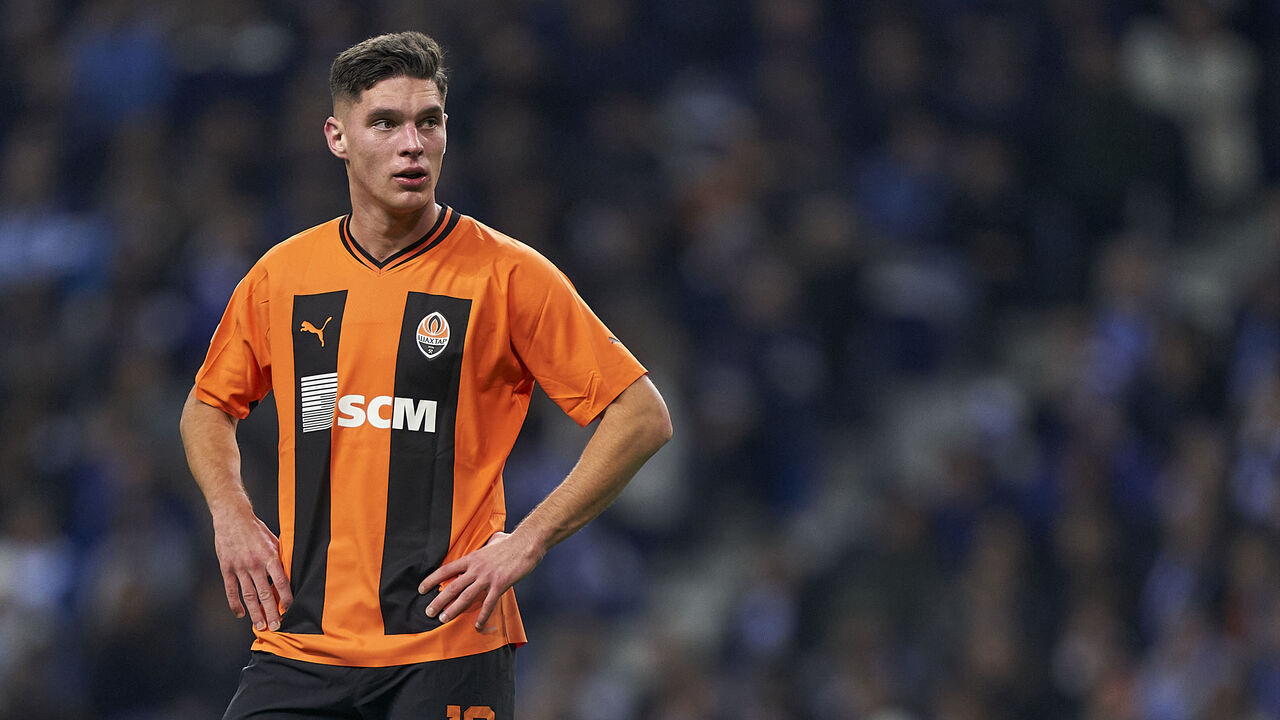
Age: 21
Position: Attacking midfielder
Estimated value: €18M
Already a regular for his national team, the Ukrainian is being monitored by Juventus, who are looking for more guile and creativity in midfield amid the continued absences of Paul Pogba and Nicolo Fagioli.
Viktor Gyokeres (Sporting CP)
Age: 25
Position: Striker
Estimated value: €45M
Sporting made out like bandits when they signed Gyokeres from Coventry City for a modest €20 million this past summer. The Swede is now worth more than double that amount after going on a tear since arriving in Portugal.
Goncalo Inacio (Sporting CP)
Age: 22
Position: Center-back
Estimated value: €40M
Like his compatriot Silva at Benfica – a player to whom he’s often compared – Inacio has been scouted by some of the continent’s heavyweights. The defender reportedly has a €60-million release clause in his contract.
Claudio Echeverri (River Plate)
Age: 17
Position: Attacking midfielder
Estimated value: €12M
Manchester City are working hard to beat Barcelona to Echeverri’s coveted signature. The ascendant Argentine was one of the standout players at the recent Under-17 World Cup and could reportedly cost up to €25 million.
Arthur Vermeeren (Royal Antwerp)
Age: 18
Position: Defensive midfielder
Estimated value: €30M
Chances are your favorite club has been linked with Vermeeren at some point in recent weeks. Judging by his displays in the Champions League, the prodigious Belgian already looks capable of handling a big transfer.
La Liga
theScore's 50 favorite moments of 2023: Titles, twists, and one epic speech
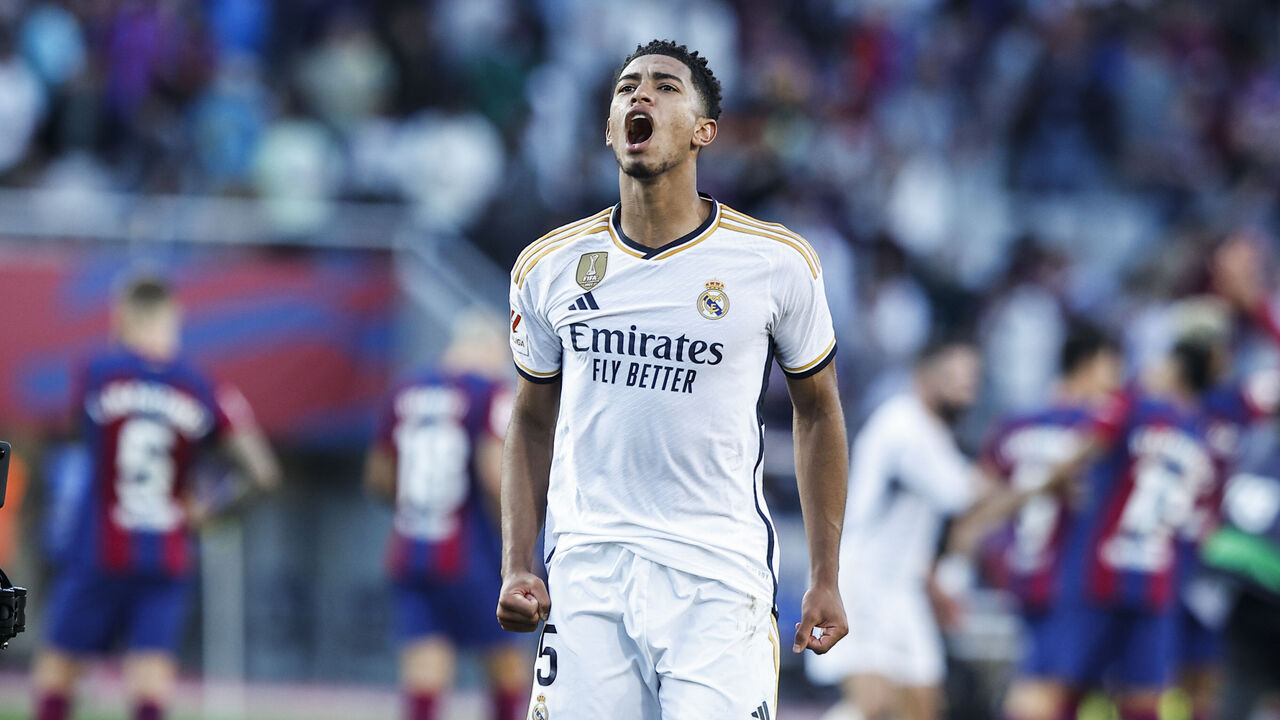
This year in sports was defined by inspiring stories, historic achievements, and surreal events that not even Hollywood could script. We loved them all. With 2023 drawing to a close, theScore is looking back on 50 moments that resonated most with us over the past 12 months. Our five-part series, which counts down every Friday in December, continues below with moments 30-21.
| Dec. 1 | Dec. 8 | Dec. 15 | Dec. 22 | Dec. 29 |
|---|---|---|---|---|
| 50-41 | 40-31 | 30-21 | 20-11 | 10-1 |
30. Bellingham takes down Barca ?
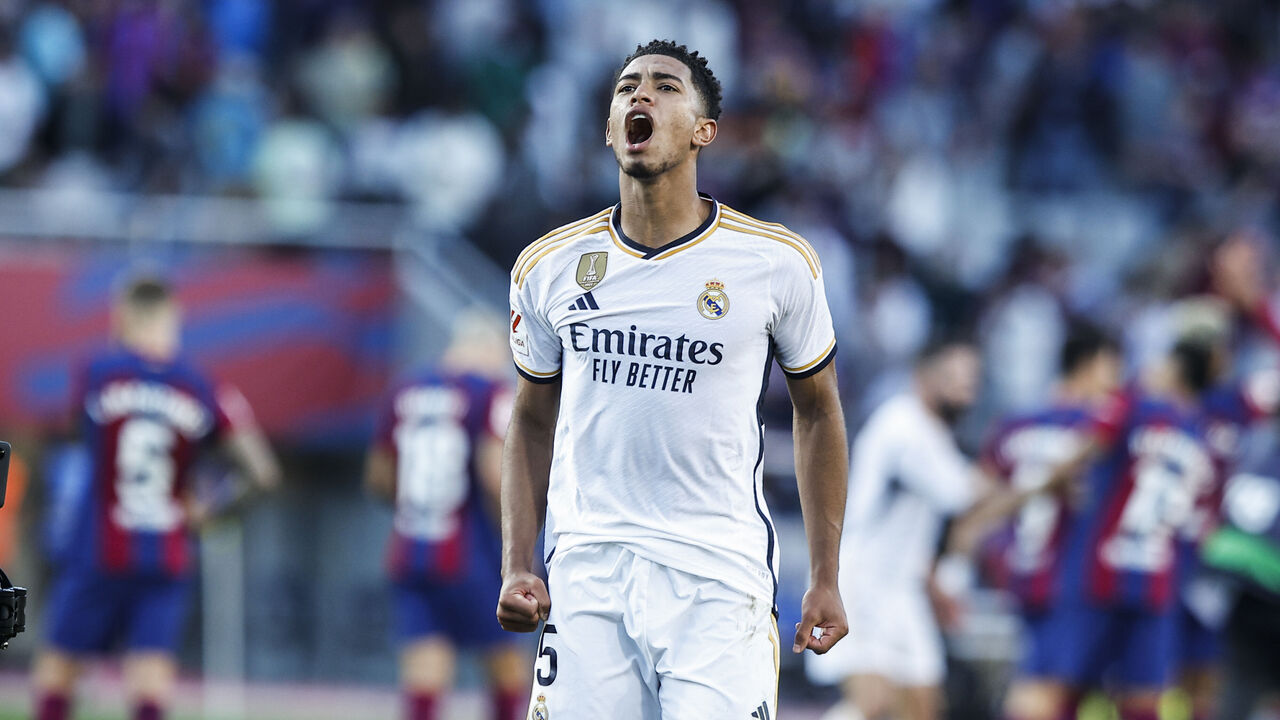
Jude Bellingham was already hailed as the second coming of Cristiano Ronaldo before he led Real Madrid to victory in his first Clasico. The English midfielder morphed into one of the best finishers in the world after joining the club from Borussia Dortmund. His 13 goals in his first 10 games – including various winning strikes – were two more than Ronaldo scored to start his iconic career in Madrid. But nothing compared to Bellingham’s heroics against Madrid’s bitter rivals, Barcelona. After scoring a spectacular equalizing goal from 30 yards out, the 20-year-old further endeared himself to fans with an opportunistic winner in the dying minutes. – Gordon Brunt
29. Etienne’s Pyrrhic performance ?
I played against myself in fantasy fb today ?
— Travis Etienne Jr?? (@swaggy_t1) October 8, 2023
Everyone loves a big fantasy football performance – unless you’re on the wrong side of it. Imagine how Travis Etienne felt after posting one of the best games of his career while playing against himself in fantasy football. The running back exploded for 136 rushing yards, four receptions, 48 receiving yards, a pair of touchdowns, and a two-point conversion against the Bills in Week 5. His opponent surely appreciated the 30+ fantasy points, but Etienne was likely happier winning the game in real life on the back of his dominant outing. – Andrew Dixon
28. PGA TOUR, LIV Golf join forces ?
If you can’t beat ’em, join ’em. After more than a year of legal battles, the PGA announced a surprise merger with Saudi Arabia’s LIV Golf, shocking just about everyone. While LIV golfers like Phil Mickelson rejoiced, many PGA golfers found out about the merger through a leaked press release on social media, and members of Netflix’s docuseries “Full Swing” found out on camera. Those who refused LIV Golf’s massive payouts were angered by the PGA’s lack of loyalty, and Tiger Woods was “frustrated” with the lack of player involvement. The tours have until Dec. 31 to finalize the agreement but, regardless of the outcome, June 6 will go down in golf history as a day stranger than fiction. – Sarah Wallace
27. FDU stuns No. 1 Purdue ?
(16) FDU UPSETS (1) PURDUE ???
MARCH. KEEPS. ON. GIVING. #MarchMadness pic.twitter.com/4T0K3n13Er
— NCAA March Madness (@MarchMadnessMBB) March 18, 2023
Five years after No. 1 Virginia lost to No. 16 UMBC, New Jersey’s Fairleigh Dickinson handed Purdue an opening-round loss in the same setup. The Knights had to win in the First Four to qualify, while the Boilermakers lost four games to end the regular season before winning the Big Ten title. FDU held off No. 1 Purdue with two clutch blocks in the final minute of play to advance the Knights to the second round. Meanwhile, No. 4 Virginia lost to No. 13 Furman, marking the second time in three years the Cavaliers lost in the first round. – Donald Higney
26. Aces breathe rarefied air ?
The Las Vegas Aces and New York Liberty were on a collision course to meet in the WNBA Finals all season long. Both teams were loaded with stars and dominated in the regular season to earn the top seeds in their respective conferences. The Aces took the first two games at home before the Liberty responded with a victory in Game 3. Las Vegas lost starting point guard Chelsea Gray and starting center Kiah Stokes to injuries before Game 4 but withstood their absences to claim a 70-69 victory. The win made them just the third repeat champion in WNBA history, and the first since 2002. – Josh Goldberg
25. José Ramírez decks Tim Anderson ?
It’s fight night in Cleveland ? pic.twitter.com/3NEIpBEbSf
— White Sox Talk (@NBCSWhiteSox) August 6, 2023
It was a bad, bad year for Tim Anderson. The former batting champ struggled through injuries and underperformed in the most disappointing campaign of his career. But the worst night of his dreadful season came on Aug. 5 when he picked a fight with the wrong guy. The White Sox shortstop hurled his glove to the ground and put his dukes up after getting into a verbal dispute with Guardians slugger José Ramírez – which turned out to be a poor decision. Anderson hit the dirt like a ton of bricks after catching a wild overhand right from Ramírez. The fight led to a bench-clearing brawl and Eloy Jiménez even got stepped on as Anderson was sidelined recovering from embarrassment. – Bryan Mcwilliam
24. Nuggets, Jokic claim 1st title ?
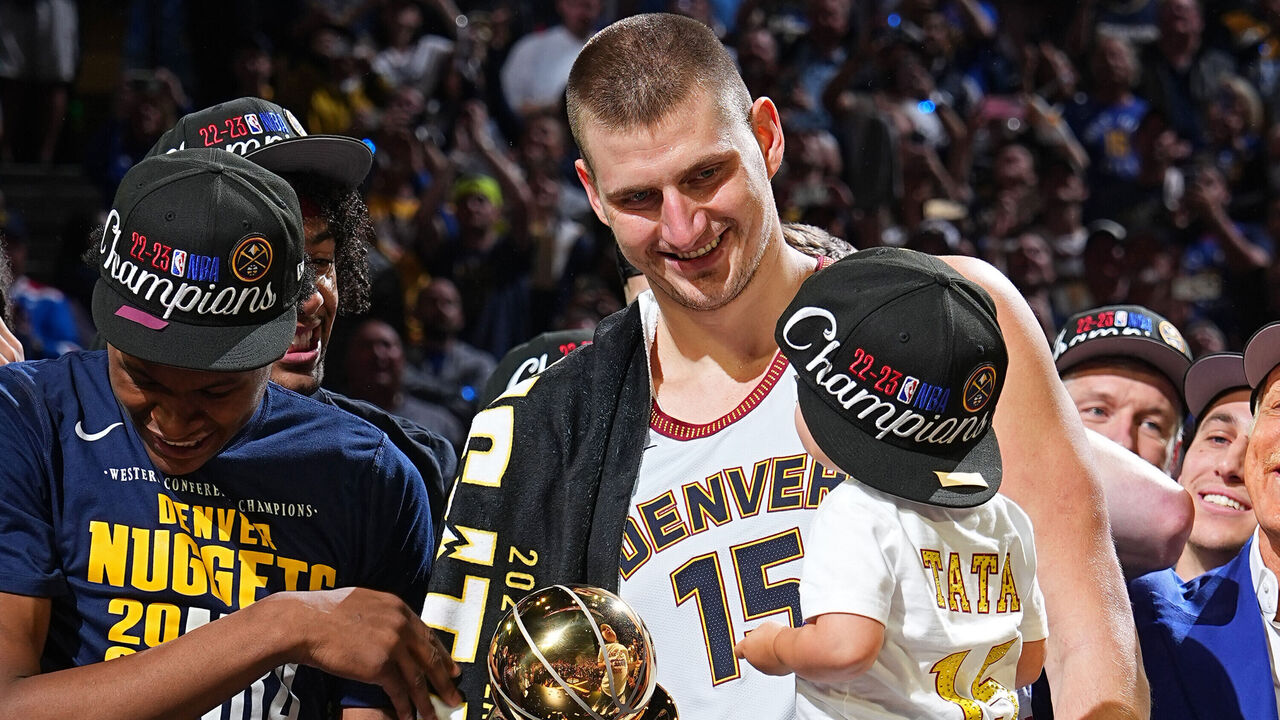
For the fifth straight season, the NBA got a new champion. The Denver Nuggets won their first championship after taking down the Miami Heat in June. Nikola Jokic dominated the playoffs, averaging 30 points, 13.5 rebounds, 9.5 assists, and 1.1 steals per game – elevating his game as the competition and stakes increased every round. Denver got a boost from Jamal Murray, who put up 26.1 points and 7.1 assists in the postseason as he played in his first campaign after an ACL tear. With this tandem, the Nuggets look to be a formidable championship contender for the foreseeable future. – Higney
23. Coco conquers US Open ?
Greatness was expected of Coco Gauff ever since she made her professional debut at 14 years old. But those expectations quickly became a burden, weighing her down even as she spent her high school years winning various 500- and 1,000-level tournaments. So when she came back from a set down against Aryna Sabalenka to win the US Open in September – clinching her first major title at the grand old age of 19 – Coco had a few things to say. “To those who thought they were putting water on my fire, you were really adding gas to it, and now I’m really burning so bright right now,” she said as the 28,000 at Arthur Ashe Stadium erupted in support. Now it’s no longer about whether Coco can win majors, but how many victories she’ll collect. – Anthony Lopopolo
22. You come at the king … ?
LEBRON JAMES IS IN #PLAYOFFMODE
CLUTCH AND-1 AS GAME 4 COMES TO A CLOSE ON TNT. pic.twitter.com/mRmbgssUzQ
— NBA (@NBA) April 25, 2023
LeBron proved that you can’t count him out, even during his 20th NBA season. After then-Memphis Grizzlies wing Dillon Brooks sent him numerous taunts and a hit in the groin, LeBron got his revenge. Leading by three points in overtime of Game 4 in their opening-round playoff series, the dueling players found themselves matched up – with LeBron driving past Brooks and drawing a timely foul to help put the lower-seeded Lakers up 3-1 in the series. In a cathartic moment, King James burst into emotion as the Lakers crowd went crazy. L.A. went on to win the series, while the Grizzlies declined to re-sign Brooks, allowing him to join the Houston Rockets. – Higney
21. Wild Bill’s legendary parade speech ?
Warning: Video contains coarse language
William Karlsson just gave one of the greatest speeches ever, absolute all-timer#VegasBorn pic.twitter.com/DeWcncvNJr
— Hockey Daily 365 l NHL Highlights & News (@HockeyDaily365) June 18, 2023
There have been some incredible Stanley Cup parade speeches over the years, but Vegas Golden Knights forward William Karlsson gave one for the ages in June. The moment he took the mic shirtless and drenched in sweat, it was clear he was about to deliver an all-timer. It’s two minutes of absolute gold: Karlsson initially censoring himself but dropping an actual F-bomb 22 seconds later. The Arizona Coyotes catching a stray. That poor woman trying in vain to get him to wrap it up with a tap on the back, the hand-across-the-throat gesture, a plea of “let’s go,” and finally dragging him across the stage. Perfection. – Josh Gold-Smith
Let us know what your favorite sports moments were in the comments!

Breaking down thrilling EPL title race with 10 games left

Euro 2024 playoffs: Miraculous Ukraine comeback, big result for Wales

Managerial merry-go-round: Predicting hires for marquee jobs

The Champions League's best XI so far

35 stars who will define the summer transfer window

Ajax show Juventus that winning requires more than individual quality
Trending
-
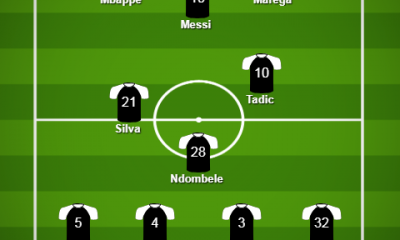
 Champions League5 years ago
Champions League5 years agoThe Champions League's best XI so far
-
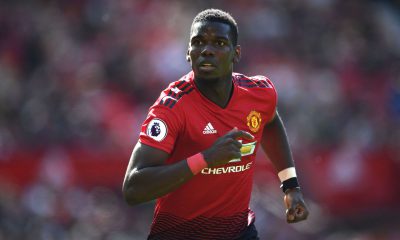
 Serie A5 years ago
Serie A5 years ago35 stars who will define the summer transfer window
-

 Serie A5 years ago
Serie A5 years agoAjax show Juventus that winning requires more than individual quality
-
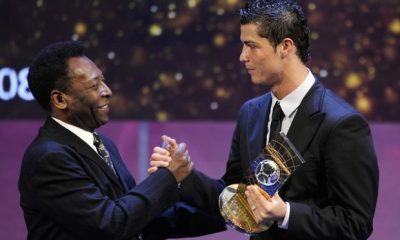
 Uncategorized3 years ago
Uncategorized3 years agoIFFHS publishes the list of top scorers in football history – Romario first, Ronaldo third
-

 Premier League5 years ago
Premier League5 years agoTransfer grades: Assessing Hazard’s move to Real Madrid
-

 Sports5 years ago
Sports5 years agoReady Newest Trainer in Bundesliga History, retire SOLSKYER.
-
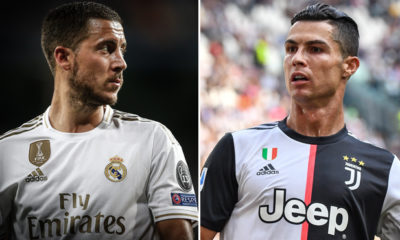
 Sports5 years ago
Sports5 years agoWenger: Hazard can’t replace Ronaldo.
-

 Sports5 years ago
Sports5 years agoMastur Talent Returns: In Milan I was a chance to make money, penalized me for growing up as a footballer.

